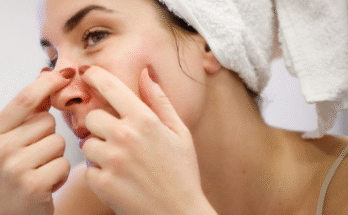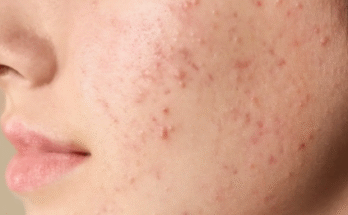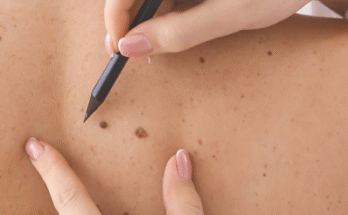Caring for oily and acne-prone skin can sometimes feel like an endless cycle of shine, clogged pores, and unexpected breakouts. However, understanding your skin type and learning how to treat it gently yet effectively can make a world of difference. With the right skincare habits and consistent care, oily skin can look refreshed, healthy, and radiant without irritation or dryness.
Oily skin is caused by an overproduction of sebum, the skin’s natural oil. While sebum is essential for maintaining moisture and protecting against environmental damage, too much of it can mix with dead skin cells and bacteria, leading to clogged pores and acne. The key to acne care for oily skin is balance — controlling excess oil without stripping the skin of its natural barrier.
The foundation of caring for oily, acne-prone skin begins with a gentle cleansing routine. It can be tempting to use harsh cleansers that promise a completely matte finish, but these products often do more harm than good. When the skin’s surface becomes too dry, it compensates by producing even more oil. A mild, foaming cleanser that removes impurities and excess sebum without leaving the skin tight is ideal. Cleansing twice a day, in the morning and before bed, helps maintain cleanliness without irritation.
After cleansing, toner can be an excellent next step. Modern toners are far more advanced than the alcohol-based versions of the past. Look for formulas that contain soothing and balancing ingredients such as niacinamide, witch hazel, or green tea extract. These help refine pores, calm inflammation, and support oil control throughout the day. The goal is not to eliminate all oil but to create harmony on the skin’s surface.
Exfoliation is another essential part of acne care. However, it should be done with care and moderation. Over-exfoliating can lead to redness and sensitivity, which may worsen acne. Gentle exfoliants that use ingredients such as salicylic acid or glycolic acid can help remove dead skin cells and unclog pores effectively. Salicylic acid, in particular, is oil-soluble, meaning it can penetrate deep into the pores and dissolve the buildup that contributes to blackheads and breakouts. Using a chemical exfoliant two to three times per week is generally enough to promote cell renewal without stressing the skin.
When it comes to moisturizing oily skin, many people mistakenly believe they can skip this step. In reality, even oily skin needs hydration. Depriving the skin of moisture can actually trigger more oil production. Lightweight, non-comedogenic moisturizers formulated with water-based or gel textures are best. Ingredients like hyaluronic acid, aloe vera, and glycerin help hydrate the skin without clogging pores or leaving a greasy feeling. Consistent moisturizing maintains a healthy skin barrier, which in turn supports clearer skin over time.
Sun protection is also crucial for acne care. Some individuals avoid sunscreen, fearing it might make their skin more oily or cause breakouts, but the truth is that skipping sunscreen can make acne scars darker and slow down healing. The right sunscreen can protect your skin from harmful UV rays without adding shine. Look for oil-free, non-comedogenic sunscreens that contain zinc oxide or titanium dioxide, which also help calm inflammation. Applying sunscreen daily, even on cloudy days, helps maintain an even skin tone and prevents post-acne marks from worsening.
For those dealing with active acne, spot treatments can be very helpful. Ingredients like benzoyl peroxide, sulfur, or tea tree extract can target specific blemishes and reduce bacteria on the skin’s surface. However, these should be used sparingly and only on affected areas. Consistency is key — applying too much or too often can cause dryness or peeling, which can irritate the surrounding skin.
Diet and lifestyle also play a significant role in the appearance of oily and acne-prone skin. Eating a balanced diet rich in fruits, vegetables, and whole grains supports the body’s overall health, including the skin. Reducing the intake of sugary or greasy foods may help minimize breakouts for some people. Staying hydrated by drinking enough water throughout the day also helps regulate oil production and supports the skin’s natural detoxification process.
Stress is another factor that can trigger breakouts. When the body is under stress, it releases hormones such as cortisol, which can stimulate excess oil production. Finding ways to manage stress, whether through exercise, meditation, or spending time in nature, can have a noticeable effect on skin clarity and balance.
In addition to skincare and lifestyle habits, keeping tools and accessories clean is often overlooked but very important. Regularly washing pillowcases, makeup brushes, and phone screens helps prevent bacteria from transferring to your face. Avoid touching your skin unnecessarily, as this can introduce dirt and oils that clog pores.
If breakouts persist despite consistent care, it may be beneficial to consult a dermatologist. A professional can provide personalized recommendations and treatments such as prescription creams, mild chemical peels, or light therapy. Dermatologists can also help identify whether the acne is hormonal or related to another underlying issue, ensuring the treatment plan is safe and effective.
Patience is one of the most important parts of acne care. Oily skin does not change overnight, and acne treatments often take several weeks to show visible results. The goal is not perfection but progress — fewer breakouts, reduced shine, and smoother texture over time. Consistency, gentle care, and realistic expectations are the foundations of long-term skin health.
To summarize, managing acne on oily skin requires a thoughtful approach. Start with a gentle cleanser, use a balancing toner, exfoliate moderately, and keep the skin hydrated with lightweight moisturizers. Protect your skin from the sun, use targeted treatments wisely, and maintain healthy lifestyle habits. Every step contributes to stronger, more resilient skin.
Caring for oily skin can become a positive and rewarding routine once you understand how to support its natural functions. When balanced correctly, oily skin often stays youthful longer, thanks to its natural moisture barrier. With the right care, you can embrace your skin type and enjoy a healthy, radiant complexion free from the frustrations of frequent breakouts.


